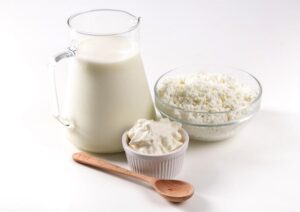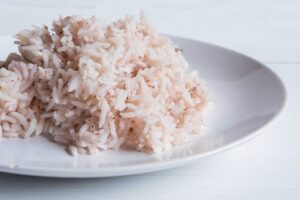Understanding OCD and the Gut-Brain Connection
Obsessive-compulsive disorder (OCD) is a chronic mental health condition characterized by intrusive thoughts (obsessions) and repetitive behaviors (compulsions). While treatment usually involves cognitive behavioral therapy (CBT) and medications, emerging research highlights the connection between gut health and mental disorders, including OCD. The gut microbiome influences neurotransmitter production, particularly serotonin and dopamine, which are crucial for mood regulation.
Studies show that people with OCD often have an imbalanced gut microbiome, leading to increased inflammation and altered brain chemistry. This is where fermented foods come into play, offering natural probiotics that can help restore gut balance and potentially alleviate symptoms.
How Fermented Foods Affect OCD Symptoms
Fermented foods contain probiotics, beneficial bacteria that improve gut flora diversity. When consumed regularly, these foods help in:
- Reducing intestinal inflammation
- Enhancing neurotransmitter production
- Strengthening gut-brain communication
Regulating Neurotransmitter Levels
Probiotics from fermented foods help the body produce gamma-aminobutyric acid (GABA), a chemical in the brain that acts as a calming agent. GABA helps reduce anxiety and obsessive thoughts, which are common in people with OCD.
When GABA levels are low, individuals may feel more anxious and find it harder to control compulsions. Fermented foods also boost serotonin production, another chemical that influences mood. Higher levels of GABA and serotonin can help make OCD symptoms easier to manage by promoting a sense of relaxation and emotional balance.
Reducing Inflammation and Oxidative Stress
When the gut is unhealthy, it can lead to chronic inflammation, which affects the brain and can worsen OCD symptoms. This is because inflammation disrupts brain function, leading to heightened anxiety and compulsive behaviors. Probiotics in fermented foods work by reducing inflammation in the gut, which in turn lowers neuroinflammation in the brain.
Studies show that people with OCD often have higher levels of inflammatory markers like C-reactive protein (CRP) and interleukin-6 (IL-6). Consuming probiotics regularly helps decrease these markers, improving brain function and reducing OCD-related distress.
Best Fermented Foods for OCD Management
Incorporating fermented foods into daily meals can be simple and effective. Here are some of the best options readily available in India:
1. Yogurt (Curd/Dahi)

- Rich in Lactobacillus and Bifidobacterium, both known to support brain function.
- Homemade curd is preferable, as store-bought versions may contain preservatives and excessive sugar.
2. Buttermilk (Chaas)

- A traditional Indian drink that aids digestion and promotes gut health.
- Regular consumption may help lower stress and anxiety levels.
3. Fermented Rice (Pazhaya Sadam/Kali)

- A staple in South Indian households, known for its probiotic benefits.
- Leftover rice soaked overnight in water ferments naturally, increasing its probiotic content.
4. Pickles (Achar)

- Naturally fermented pickles, especially those without vinegar, provide a dose of gut-friendly bacteria.
- Avoid industrial pickles loaded with preservatives, as they may not offer probiotic benefits.
5. Idli & Dosa

- These fermented rice and urad dal (black gram) dishes support digestive health.
- Traditional fermentation enhances beneficial bacteria, improving gut function.
6. Kanji (Fermented Carrot & Beetroot Drink)

- A North Indian probiotic drink made by fermenting carrots and beets in water.
- Packed with lactic acid bacteria that aid gut and mental health.
How to Incorporate Fermented Foods into Your Diet
Adopting fermented foods as a regular part of your diet requires consistency. Here’s how to get started:
Daily Meal Ideas
- Breakfast: Idli with coconut chutney, yogurt with fruit
- Lunch: Buttermilk with rice, fermented pickles
- Snacks: Kombucha, probiotic-rich lassi
- Dinner: Dosa with sambar, fermented vegetable salad
Tips for Maximum Benefit from the Fermented Foods
- Choose homemade or organic fermented foods
- Introduce one fermented food daily to observe digestive and mental health responses.
- Avoid excessively processed commercial products with added preservatives.
- Combine fermented foods with fiber-rich and nutrient-dense meals to support gut microbiome diversity.
- Consume regularly for long-term gut health benefits.
- Track changes in mood, anxiety, and compulsive behaviors to assess the impact.
Potential Side Effects and Considerations
While fermented foods are generally safe, they may cause:
- Bloating and gas initially due to gut flora adjustment
- Histamine sensitivity in some individuals, leading to mild allergic reactions
- Sodium overload from certain pickled items
If you have severe gut issues or are on psychiatric medications, consult our OCD doctor in Mumbai before making dietary changes.
Related : How Sugar and Processed Foods Impact OCD and Anxiety
The connection between fermented foods and OCD symptom relief is an exciting area of research. By including probiotic-rich foods like yogurt, buttermilk, idli, and kimchi in daily meals, individuals with OCD may experience improved mental well-being. While dietary changes alone cannot replace medical treatment, they can be a valuable natural supplement to therapy and medication. For those in India, integrating traditional fermented foods into daily life offers an accessible and effective way to support mental health naturally.

